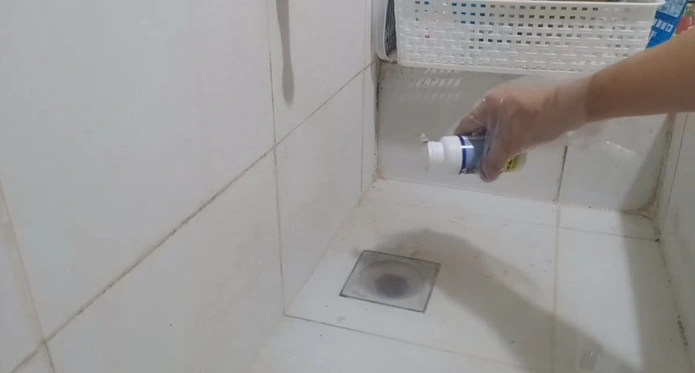Last Updated on January 16, 2023
Avoid a plumbing nightmare and prevent clogged drains by asking: is drain cleaner flammable? Drain cleaners come in many forms. Some are flammable, others safe for use around the home.
Non-flammable drain cleaners using natural ingredients, biodegradable bacteria formulas, and special microbes are the safer choice if you’re looking for ways to avoid exposure to hazardous chemicals. Whereas acid, caustic and oxidizing options contain combustible elements that can quickly burst into flames with extreme heat or a spark.
Do you know the risks of using a flammable drain cleaner? Let’s explore this dangerous and fiery topic today. We’ll take a look at various types of safe, yet potentially hazardous drain cleaners which have been known to cause fires but also how we can protect ourselves from them.
What Types of Drain Cleaners are not Flammable?
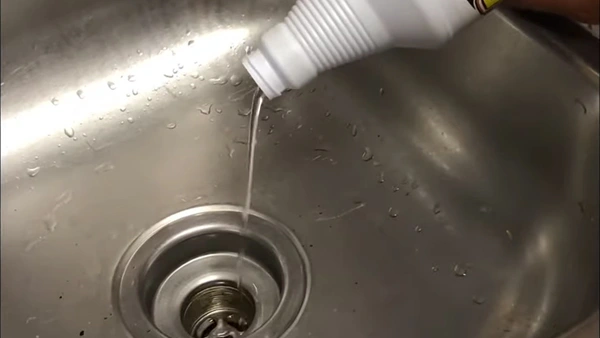
Not all drain cleaners are flammable, some have been designed to be non-flammable. A quick glance at the necessary information about safe drain cleaners.
Formula:
- Enzymatic technology
- Natural ingredients and biodegradable bacteria formula
- Non-corrosive formula
- Contains no phosphates, Sodium hydroxide
- Special natural microbes
Properties:
- Non-flammable
- Non-Toxic
- No VOCs
- Safer than chemical-based cleaners
Types:
- Liquid form
- Solid or Tablet form
Common Applications:
- Toilet
- PVC pipes
- Kitchen
- Bathtubs
- Showers
- Sinks
Special Applications:
- Metal pipes
- Lavatory surfaces
- Septic systems
- Basement floor drain
Designed to Remove:
- Black sludge
- Garbage disposals
- Eliminates odors
- Hair
- Fats
- Oils
- Grease and more
Discussion in detail on Non flammable (Safe) Drain Cleaners
Formula:
Enzyme-based drain cleaners are not flammable and widely used. These drain cleaners, sometimes referred to as “bio-cleaners,” use enzymes to break down organic material such as hair, fats, oils, and grease (FOG) that can block drains.
These cleaning products work by using natural enzymes that react with the clogging material, breaking it down into small particles which can then be flushed away. Instead, they rely on different types of bacteria to do their work.
Unlike chemical solutions, enzymatic drain cleaners don’t contain harsh chemicals or other hazardous materials such as phosphates or sodium hydroxide.
Advantages:
The advantages of enzyme drain cleaners include being environmentally friendly and not producing noxious fumes or odors. Since they contain bacteria, these cleaners can consume organic material blocking pipes over time rather than simply dissolving it on contact like some chemical solutions.
Enzymatic drain cleaners provide an effective and safe solution for tackling blockages without posing any threat of fire caused by flammable liquids or gasses.
You Can Also Read: When does a drain cleaner neutralize?
Forms:
Today, there are numerous types of nonflammable drain cleaners available on the market for dealing with clogged drains. A non-flammable enzymatic drain cleaner usually comes in liquid form or tablets and contains natural microbes that eliminate foul smells and break down buildup.
Applications:
Liquid cleaners typically contain no harsh chemicals or abrasives, making them much safer for use, even near open flames. With the liquid cleaner, you can clear backed-up basement floor drains and sink fixtures that run slowly.
Solid or tablet form drain cleaners are safe to use on both PVC pipes as well as septic systems. Some drain cleaners are also designed for metal pipes to remove tough clogs from garbage disposals without any risk of igniting a fire or explosion due to their non-flammability properties.
These natural drain cleaners can remove black sludge buildup in pipes without producing any hazardous fumes or odors.
What Types of Drain Cleaners are flammable, and What Their Flammability Ratings
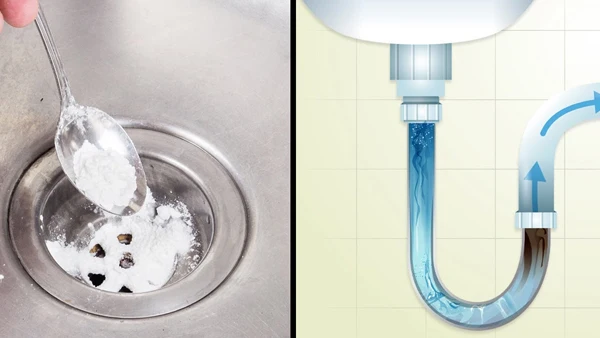
1. Acidic Drain Cleaner and its Flammability Rating:
Acidic drain cleaners are highly flammable because they contain sulfuric acid, hydrochloric acid, phosphoric acid, citric acid, and malic acid. When these cleaning products are mixed with combustible materials, such as rags, paper towels, or cardboard boxes, fire can occur.
These drain cleaners are chemical compounds designed to break down material such as grease, hair, and soap scum in plumbing systems.
Flammability Rating:
The National Fire Protection Association (NFPA) rates the flammability of these materials as a 3 on their 0-4 scale, with 4 being the most flammable and 0 being the least flammable. Note that sulfuric acid has a higher fire hazard rating than other acidic drain cleaners due to its lower flashpoint temperature.
2. Caustic Drain Cleaner and Its Flammability Rating:
Caustic drain cleaners are composed of sodium hydroxide (lye), which is extremely flammable and caustic. Sodium hydroxide is also known for being unstable when heated or mixed with certain types of materials, such as metal powders or combustible substances.
So these cleaning products are dangerous to use without wearing protective gear like rubber gloves and other proper safety precautions.
Flammability Rating:
According to the NFPA’s Material Safety Data Sheet for sodium hydroxide, it is rated with a 2 on the 0-4 scale for flammability. This rating means it poses a moderate risk for combustion or explosion when exposed to extreme heat or flame sources.
3. Oxidizing Drain Cleaner and its Flammability Rating:
Although Oxidizing drain cleaners are not so dangerous, they still pose a fire hazard if not stored properly. These drain cleaners contain chemicals such as sodium hypochlorite, hydrogen peroxide, or nitrates, often found in common household cleaning products.
They are commonly used to remove hair and soap scum from pipes without producing toxic fumes like those released by acidic cleaning agents.
Flammability Rating:
This oxidizing cleaner has an NFPA rating of 3 Therefore, if exposed to extreme temperatures or open flames such as welding arcs or sparks from motors/engines/tools, it may easily ignite.
Hydrogen Peroxide is another common type of oxidizing drain cleaner which has a NFPA rating of 1. The rating means it has slight fire hazards under certain conditions but does not usually ignite spontaneously at normal temperatures/pressures.
Nitrates that come in liquid form have an NFPA rating of 0. This rating means they do not normally ignite under normal circumstances. But they should still be handled carefully due to their reactive nature when mixed with combustible materials like wood chips/paper towels etc.
All types of oxidizing drain cleaners should be handled with care in order to prevent any potential fires from occurring due to their relatively high reactivity rates with organics as well as some combustible substances found within general household environments.
Potential Causes for Drain Cleaners to be Flammable
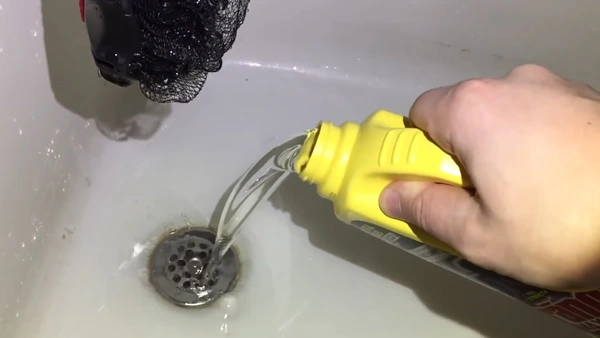
1. Air and Heat Sources from Home Appliances:
Drain cleaners have the potential to be flammable due to the release of air and heat from home appliances. When used in an area with high levels of heat, they can become extremely combustible.
Special care should be taken when using drain cleaners around any type of heated appliances, such as a furnace, stove, dryer, or water heater. When exposed to extreme temperatures, drain cleaners can ignite or cause a fire.
2. Contact with Open Flames or Sparks:
Another potential cause for drain cleaners to be flammable is contact with open flames or sparks. Any type of flame can quickly ignite the volatile components within drain cleaner solutions and cause severe damage not only to property but also potentially injury to people nearby.
Therefore, extra precautions should always be taken whenever handling these products near sparks or fires such as lighters, cigarettes, matches, etc. The immediate surrounding area must also be cleared before use to ensure safety.
3. Hydrochloric Acid in Low Concentrations:
The hydrochloric acid present in low-concentration levels within some drain cleaners has been identified as yet another potential contributor to them being flammable.
Hydrochloric acid reacts violently with organic materials (e.g., paper towels), which increases its ability to start fires quickly when mixed together.
4. Contact with Combustible Materials:
Drain cleaners can ignite when they come into contact with combustible materials in a home, such as kerosene oil, cooking gas, leaves, coal, paper, charcoal, wood furniture, and wax.
Also, these commercial drain cleaners may ignite when they get in contact with flammable materials such as wood, hydrogen gas, ethanol, methane, and propane.
Any form of friction caused by physical contact between these two substances may lead towards combustion which could potentially result in substantial damage (both property wise and healthwise).
5. Volatile Organic Compounds (VOCs) Present in some Formulas:
Volatile organic compounds (VOCs) are chemical compounds that have high vapor pressure at normal temperatures and pressures. Many everyday products contain VOCs, such as paint, cleaners, aerosols, and drain cleaners.
The presence of VOCs increases the risk of drain cleaner fires. VOCs are released when the drain cleaner is used, which can create an explosive atmosphere if there is sufficient oxygen present.
6. Poor Disposal Practices:
Chemicals within the formula can become airborne during transfer between containers (or simply sitting out too long). Once you’re done using drain cleaners, dispose of them right away by putting them in sealed containers before moving them away.
7. Poor Ventilation Areas around Appliances and Drains:
If you are repairing an appliance that uses drains, such as a washing machine or dishwasher, ensure that sufficient ventilation is provided to prevent gas mixture.
The gas from a recent drain cleaner application could still exist around if someone attempted electrical repairs close to it without taking proper safety precautions (such as turning off power sources).
What to Do if You Suspect a Fire Risk from Using a Drain Cleaner
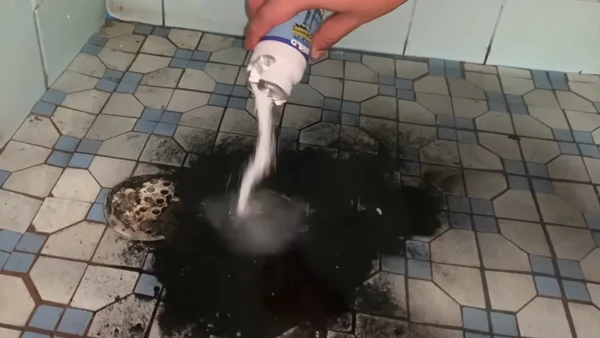
1. Leave the Home Immediately
2. Notify the Local Fire Department
3. Avoid Contact with Skin or Eyes
4. Wear Protective Gear Before Handling Product
5. Discontinue Use if You Notice Any Unusual Odors or Smoke
5. Use Proper Extinguishing Resources if Available
6. Ensure Adequate Ventilation in Area
7. Follow All Manufacturer’s Instructions Carefully
How Do You Get Rid of Flammable Fumes from Drain Cleaners?
1. Open windows and doors to allow fresh air while working on the drain or after you have finished working with it.
2. Try to turn off or reduce any heating or cooling systems that may circulate the fumes throughout your home.
3. Place an exhaust fan near your open window or door to suck up any fumes lingering in the air.
4. Consider using natural ingredients such as baking soda, vinegar, lemons, etc., instead of toxic chemical-based drain cleaners for future use.
Can Drain Cleaner Burn through Pipes?
Yes, drain cleaners can potentially burn through pipes as a result of their highly caustic and corrosive nature. Drain cleaners contain harsh chemicals like hydrochloric acid, lye and sulfuric acid, which can severely damage plastic and metal pipes.
Do Drain Cleaners Give off Heat?
Drain cleaners give off heat by creating a chemical reaction inside the drain pipe. When using these cleaning products in pipes or poorly sealed fittings, excessive heat may build up and eventually cause the pipe to burst and potentially start a fire.
Additionally, when combined with other sources of heat or combustible materials like paper towels or rags, even small amounts of heat generated by drain cleaner may spark a larger fire.
What are the Hazards of Drain Cleaner besides Their Flammable Properties?
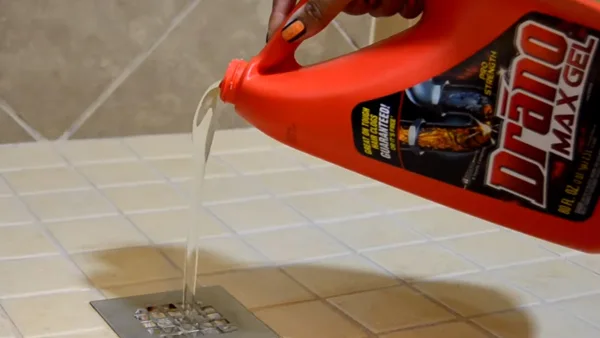
The use of drain cleaner carries a number of potential health risks. It is highly corrosive and can cause severe burns to skin, eyes, and other sensitive areas if it comes into contact with them.
Exposure to the fumes may cause symptoms such as eye irritation, nausea, headaches, or dizziness. Vision loss can also occur if the poison gets into the eyes.
Ingestion of the cleaner can lead to abdominal pain, difficulty breathing due to throat swelling, chest pain, diarrhea, drooling and even collapse in some cases. Large quantities of drain cleaner fumes can also cause breathing problems, particularly if they irritate the lungs and throat.
Why does the Drain Cleaner Burn?
Drain cleaners burn because they contain strong acids such as hydrochloric acid and sulfuric acid, which react vigorously when mixed together and heated up.
These reactions cause an increase in temperature, which can lead to the burning or melting of pipes made from weaker materials such as plastic or cast iron.
Are All Commercial Drain Cleaners Safe?
Commercial drain cleaners are commonly used to remove clogs from your pipes, but you should understand which types are flammable and safe. To prevent fires and explosions, you should also be aware of their potential risks and safety precautions when handling them.
Many commercial drain cleaners are flammable, but there are some products made with natural ingredients and biodegradable bacteria formulas that can effectively clean your drains. Always wear safety equipment like gloves and safety glasses when handling or applying drain cleaners.
It is crucial to practice caution when storing and utilizing harsh commercial drain cleaners due to their potentially hazardous effects in the event of a fire. Due to the incredibly destructive nature of fires, any other flammable chemicals or combustible materials should also be kept separate.

